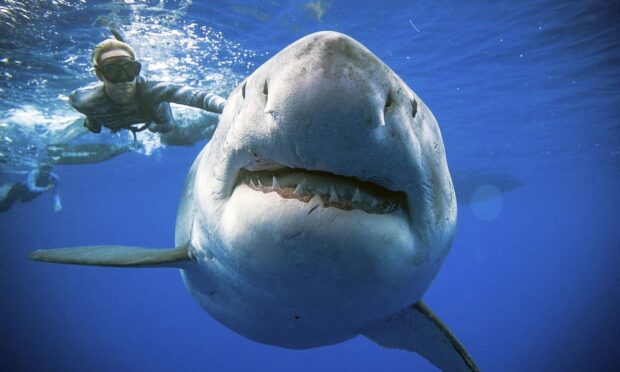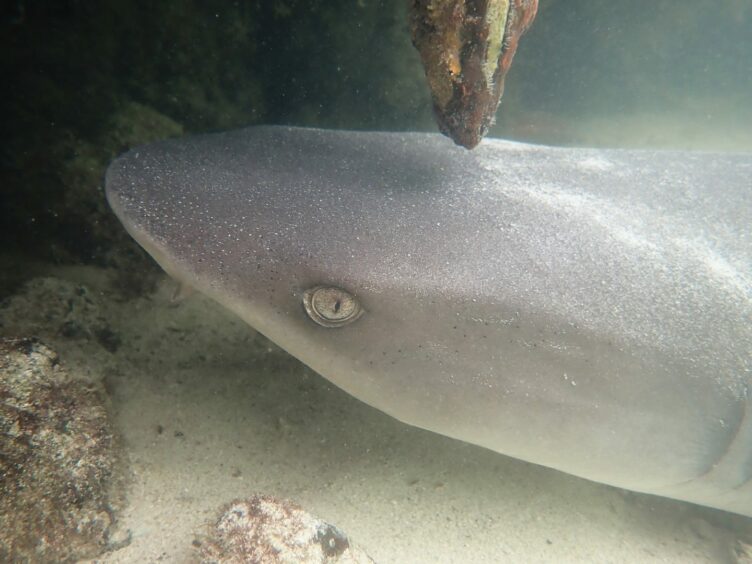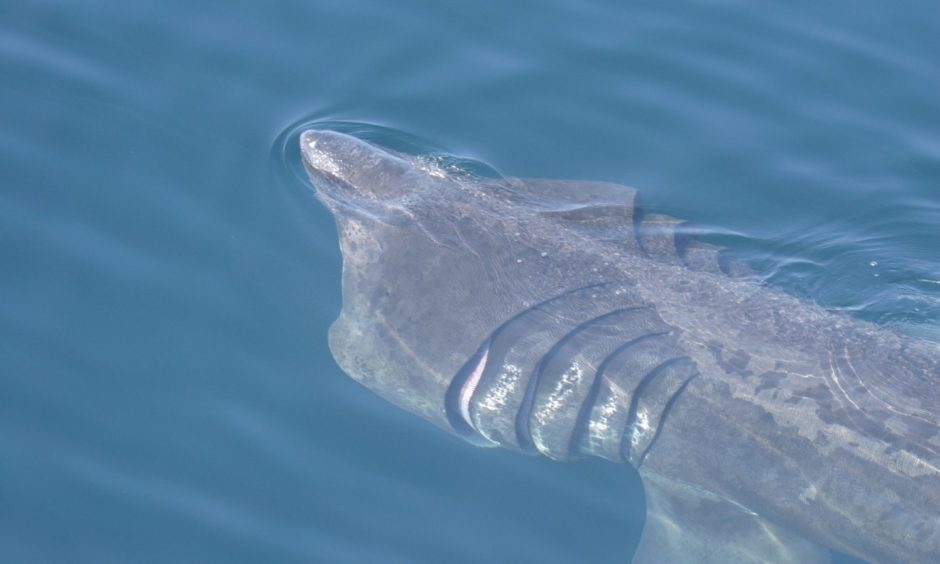The water in the shallow mangrove lagoon in the Pacific was murky, and as I slowly kicked my flippers, a mysterious dark shape resting on the sandy bottom appeared out of the gloom.
Suddenly, a large crescent shaped tail flashed only inches before my facemask and a rough object momentarily brushed my belly – a shark!
It was a white-tipped reef shark and in an instant several more materialised in this Galapagos lagoon where I had the privilege to snorkel earlier this month.
White-tips have the peculiar habit of resting during the day and hunting by night.
Most sharks need to swim continuously to receive oxygen through their gill slits to survive, however some species, including whitetips, have muscles that pump water through their gills, enabling them to rest.
Sharks in British waters
My encounter with these incredible animals got me thinking about sharks in our own waters.
The seas off the British Isles are home to many different types of shark, which reflects the remarkable diversity of marine habitats around our shores.
Species range from small catsharks through to tope and the giant plankton-eating basking sharks often seen off the west coast.
Fast-swimming porbeagle sharks chase shoals of mackerel during the summer and other species include the large and mysterious Greenland shark that occasionally visit our shores.
There is also the tantalising prospect that great white sharks may haunt our waters.
Great whites – demonised by Jaws!
Demonised in the classic 1970s novel and film, Jaws, there can be few creatures that hold such fear and respect.
Armed with a formidable array of serrated teeth, growing up to 20ft in length and powered by a deep muscular body, this is a supreme predator most normally associated with ferociously patrolling the seal pupping grounds of South Africa, Australia and California.
But could great white sharks be lurking around Scottish seal colonies on the hunt for prey, in particular the Monach Isles, which is home to the second largest grey seal colony in the world?
In October, large numbers of grey seals congregate on these wonderful and far-flung isles off North Uist to have their pups.
It is the perfect place for a great white to hunt.
There have already been credible reports from the area.
In 2005 a teacher from North Uist saw a 16ft shark off the island, and a couple years later another man took video footage of a shark in the Sound of Harris which experts say could have been a great white.
In 2003, a diving party encountered a large shark off Ullapool, which matched the description of a great white.
Great white sharks wander far and there is no doubt in my mind that on occasion they visit Scotland.
Equally indisputable is the importance of sharks to our marine ecosystems.
Sharks are apex predators and if numbers dwindle, the whole food chain collapses.
Our future well-being is dependent upon the health of our seas, and as such, the protection of our sharks is vital, for these magnificent beasts are the lifeblood of our oceans and a fundamental keystone of the marine environment.



Conversation